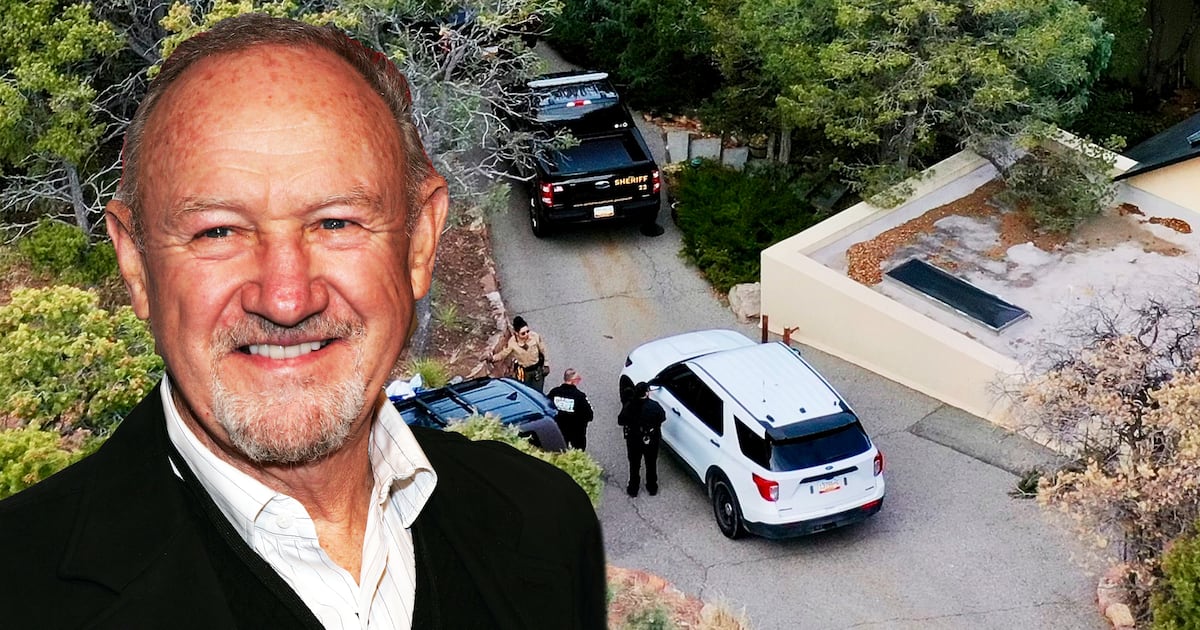Swing-district Rep. Claudia Tenney (R-NY) has styled herself as a small business booster in the image of Donald Trump—and just like the former president, some of Tenney’s favorite businesses to support seem to be her own.
According to a Daily Beast review of Federal Election Commission records, the congresswoman from upstate New York—who scratched out a 109-vote recount win earlier this year in one of the tightest House races in the nation—has spent tens of thousands of campaign dollars on businesses where she held an ownership stake or an executive job, and from which she reported $130,120 in income in 2020.
This year alone, as she wrestled Democratic opponent Anthony Brindisi over the final vote tally in court, Tenney shelled out $15,634.85 for a medley of rent, telephone service, and office supplies to OMP Park, Inc., a company that New York business records show is registered in her name and which identifies her as its CEO.
In her 2016 personal financial disclosure, Tenney reported that she was the entity’s president. That same year, her campaign paid a combined $28,676.86 for rent, utilities, printing, and postage to OMP and to Mid-York Press, a company where her official congressional page states she served as “co-owner and legal counsel.” Her official financial filing at the time identified her as Mid-York’s secretary as well.
In total, Tenney’s campaigns, both for federal and state offices, have earned her family’s companies more than $100,000.
The Tenney team did not respond to multiple requests for comment.
Ethics watchdog Citizens for Responsibility and Ethics in Washington told The Daily Beast that federal law allows for candidates to pay their own companies out of their campaign funds so long as all transactions are market rate. Undercharging renders an advantage to the campaign, while overcharging enriches the candidate.
To be safe and sanitary, an attorney with the group argued politicians should refrain from such arrangements if at all possible.
"It is generally best practice, if you can avoid it, not to engage in business with a company that you or your family owns,” said CREW senior counsel Adam Rappaport. “If you are going to do it, it is best practice to make sure you're dealing at fair market values and to keep good records, because that's what the law calls for.”
However, it is impossible to tell whether Tenney’s campaign paid market rate for the space services, as disbursements from the committee have been sporadic. For instance, just this January, the campaign made two payments earmarked for rent: one in the amount of $2,000 and the other for $12,059.81.
The filings show that the second tranche, however, also included the location’s telephone bill. These were the first payments the campaign had made to OMP since a $1,173.84 “phone services” charge the previous May, even though the campaign Facebook page identified the OMP building as its office in a post from July and announced a phone bank event there in November.
Kedric Payne, the general counsel and senior director of ethics at Campaign Legal Center, noted to The Daily Beast that congressional rules allow a lawmaker to lease property to their own campaign only if there is a legitimate need for the space and fair market value is paid.
“The payment records in this matter do not provide sufficient facts to know if the lawmaker is in compliance,” Payne said. “Voters should expect an explanation from their elected official or an ethics investigation to verify that the payments comply with the law.”
Documents filed in a recent lawsuit by the new owner of the Clinton, New York, property against OMP show the Tenney company agreed to rent 1,500 square feet at the location for $1,500 a month. The lawsuit identifies the congresswoman as OMP’s “principal owner,” and produced paperwork she signed in 2020 as its president. But it is unclear how much of this space the Tenney campaign actually occupied.
Similarly, public records cannot show whether the campaign paid a market rate for the services received from Mid-York. In total, Tenney’s federal campaign has paid $64,733 to her family companies, on top of $45,038.29 she laid out to them as a contender for state office.
Tenney reported six-figures in wages from Mid-York and OMP last year, at the same time she was signing documents as its president. It is unclear whether Tenney’s job was one of those Mid-York and OMP cited in order to receive more than $860,000 in now-forgiven Paycheck Protection Program loans last year—or an additional $845,742 in January.
Tenney, a Tea Party favorite, first won election to her congressional seat in 2016, replacing the moderate Republican Richard Hanna. She has since leaned hard into Trumpism, despite representing a middle-of-the-road district. And she rocketed to prominence when Trump rewarded her loyalty in 2018 with an in-person fundraiser in her district.
The cash amassed wasn’t enough to overcome the blue wave that year, however, as Tenney lost her seat to Brindisi in the fall. But she launched a successful comeback and toppled the Democrat in one of the most closely watched races in the country—with a recount dragging out into February.
Despite facing a tough re-election fight in 2022—one potentially made even tougher by redistricting in a Democrat-controlled state—Tenney has only aligned herself with Trump even more. On social media, she has pointed to the protracted legal fight over her seat as supposed proof of “planned chaos engineered mostly by Democrats” to mar the 2020 election. And in June, she made her way to the ex-president’s golf course in Bedminster, New Jersey to record an early endorsement message.
The criticism Trump has faced for the torrent of campaign cash he has poured into his own properties since 2015 seems to have hardly dissuaded Tenney from doing the same, though her pattern of behavior actually predates his, stretching back to her earliest bids for state office.
OMP and Mid-York both appear to be part of the Tenney family’s pennysaver and printing business. FEC records and social media posts show that she has maintained campaign offices at OMP’s corporate address, in a small complex along a rural road in Clinton, New York, and a sign visible on Google Maps shows she keeps her private law practice at the same location.









